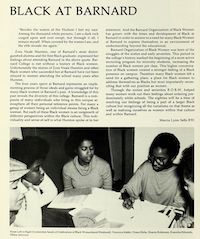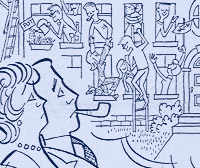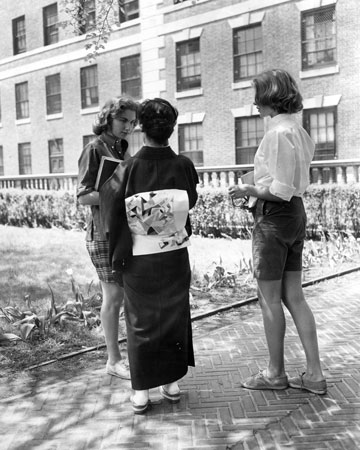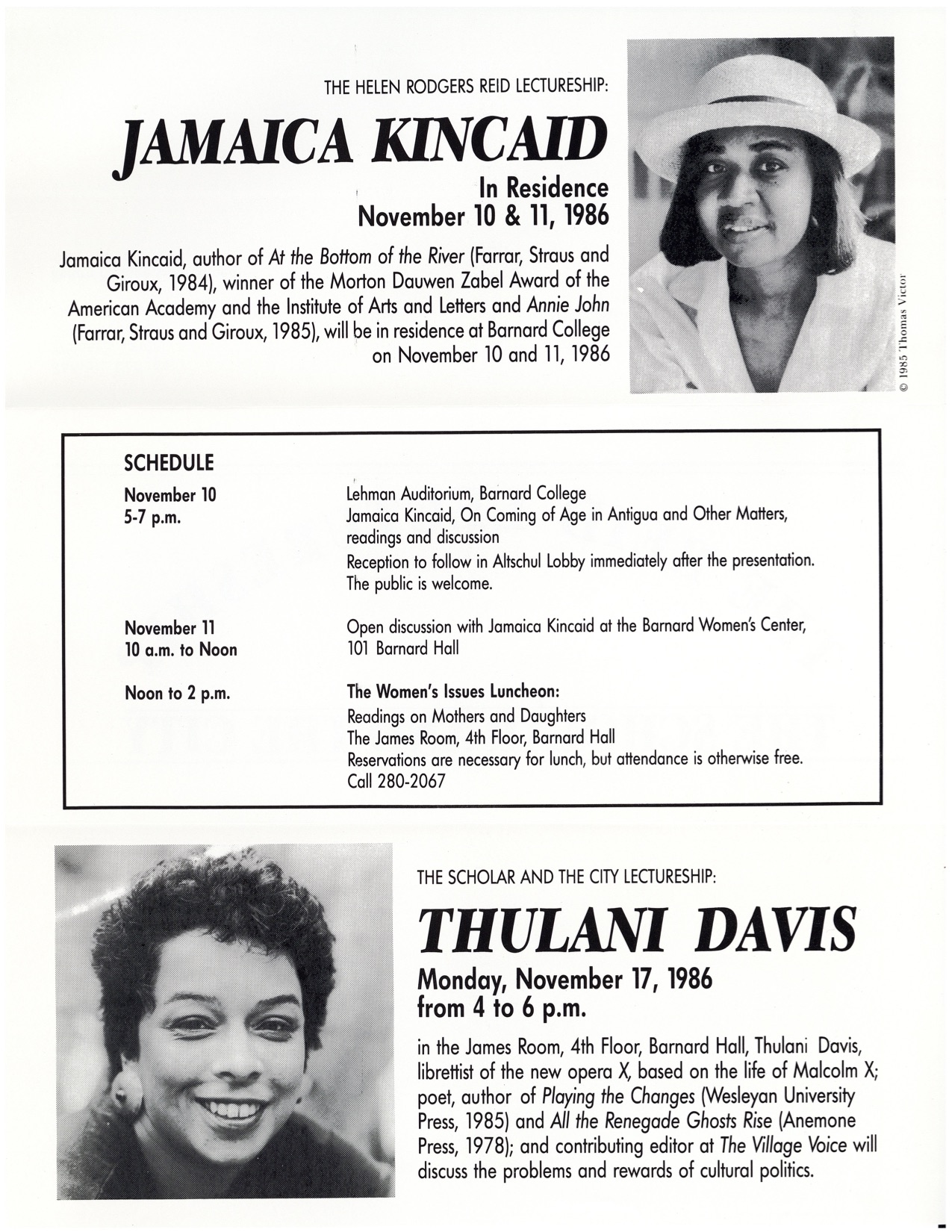Exhibits
Black @ Barnard: Analyzing How Black Barnard Students Exist On Campus
Black @ Barnard is a research project that aims to provide more of an understanding & accessibility to the historical legacies of Black student life at Barnard. This project has several goals: to collect all of the names of Black students who have existed on campus, to understand where Black students came from, to help understand some of the challenges that Black students faced on and off of campus, to recognize Black students who have had extraordinary success after and on campus, and to make information about Black Barnard students more accessible. Exhibit created by Corinth Jackson '20 as part of the Digital Humanities Summer Institute (exhibit will open on an external site).
Rooming at Barnard
This project tracks Barnard housing's relationship to protection, personal freedoms, the broader neighborhood, and student action. It presents historical moments and a set of themes which remain relevant today: Students continue to enforce and resist housing policies. The administration works to foster an image of safety and acceptable femininity as the identity of the college shifts. University development continues northward and threatens Harlem residents' ability to stay in their homes. This project opens these questions for further research into, engagement with, and challenging of Barnard College, our community members, and ourselves. Exhibit created by Maya Garfinkel '19 (exhibit will open on an external site).
From LeClair to Low Library: Barnard's Spring of 1968
In the summer of 2007, a group of representatives from a variety of departments and offices – including myself, as an alum with a passion for Barnard history – met in the Career Development conference room for the purpose of designing a year-long series of events as a part of the 40th anniversary of the 1968 student protests on campus. A “Town Hall” discussion for students on student activism, a lecture by noted historian, Estelle Freedman ’69, and videotaped oral histories, all became part of the plan. Someone raised the idea that a timeline or an archival project should also be included – and this exhibit was born. Shown at both the Freedman lecture and then later at Reunion 2008, it now finds new life online. The story of 1968 is well-known and oft-told, mostly from the perspective of Columbia and its all-male student body at the time. I wanted to tell the story of those tumultuous days from the Barnard perspective. Because, while Barnard women may have felt just as passionate about the same issues as Columbia men, they also had their own set of unique concerns that spring – embodied in the “LeClair Affair” chronicled here. Exhibit created by Rona Wilk '91 (exhibit will open on an external site).
BCRW @ 50
The Barnard Center for Research on Women (BCRW) brings scholars and activists together through its working groups, public events, publications, and multimedia projects to advance intersectional social justice feminist analyses and to promote social transformation. BCRW is committed to vibrant and engaged research, pedagogy, art, and activism, supporting the work of scholars and activists to create new knowledge and to challenge and refine how we understand the world around us. Since its founding in 1971, the BCRW has cultivated collaborative and accountable relationships with community organizations, activists, and cultural workers in New York City, across the US, and transnationally. In honor of BCRW’s 50th anniversary in 2021, this project seeks to explore the Center’s history and commitment to critical feminist engagement with the academy and the world. Through close study of the BCRW Collection housed in the Barnard College Archives, this Scalar project aims to celebrate—as well as critique—BCRW’s 50 years.



